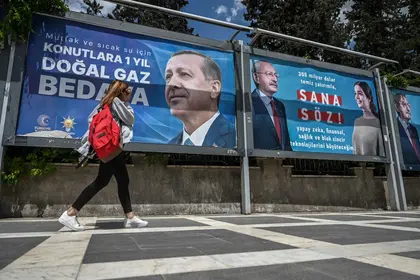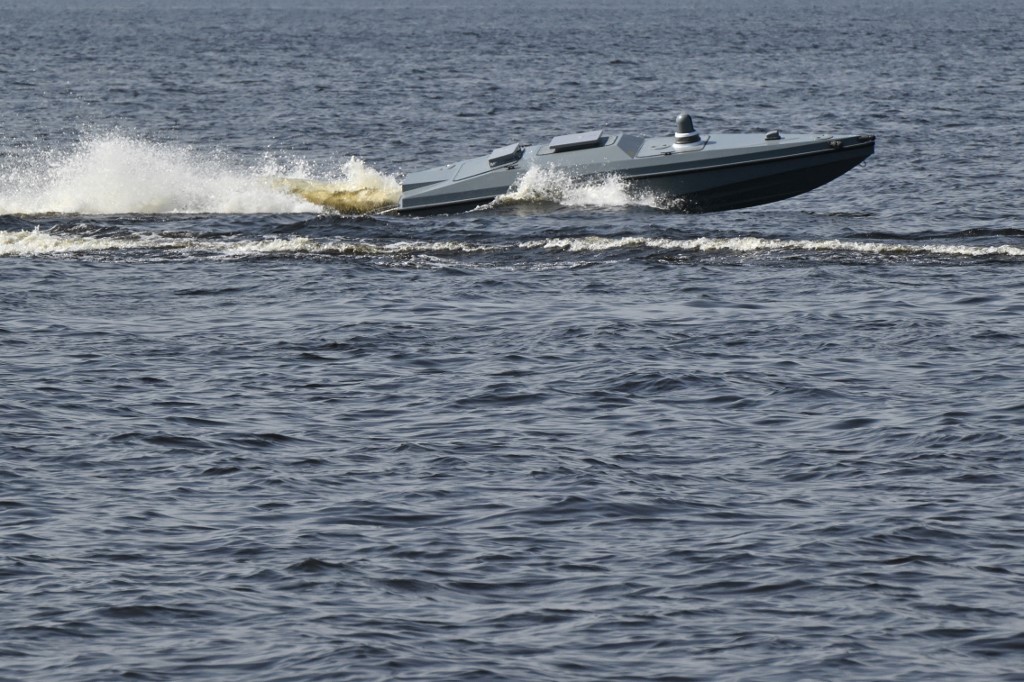Turkey reached the final stretch Friday of a bitter presidential campaign that has seen Recep Tayyip Erdogan and his secular rival exploit fears about migrants and Kurdish militants.
Erdogan appears on course to extend two decades of his Islamic style of rule until 2028 in Sunday's runoff.
JOIN US ON TELEGRAM
Follow our coverage of the war on the @Kyivpost_official.
His victory would preserve the key NATO member's reputation as a problem child that plays off rivalries between Moscow and Washington while pushing its own course in the Middle East.
Secular opposition leader Kemal Kilicdaroglu presented a clear alternative to Erdogan in the first round on May 14.
The former civil servant ran an inclusive campaign that pledged to mend ties with Western allies and cure Turkey's economic problems with orthodox prescriptions rejected by Erdogan.
Kilicdaroglu created a six-party alliance that grouped some of Turkey's most irreconcilable forces and received the crucial support of Kurds.
It was the type of coalition that Erdogan excelled at building while repeatedly winning at the polls.
But Kilicdaroglu still lost by nearly five points in what was widely seen as Erdogan's toughest election -- and the most consequential in Turkey's post-Ottoman history.
- 'Terrorist lovers' -
The 74-year-old opposition leader vanished from view for four days and then reappeared as a transformed man.
He dropped his appeals for social cohesion in the sharply polarized country and instead turned his focus on expelling millions of migrants and fighting militants.

Türkiye, Syria, Russia and US
"As soon as I come to power, I will send all the refugees home," Kilicdaroglu said in his first post-election address.
Erdogan responded along the same lines.
He doubled down on his attempts to cast Kilicdaroglu as an ally of outlawed Kurdish militants and scoffed at the opposition's attempts to talk tough on security issues.
"Until yesterday, they were terrorist lovers," Erdogan said of his rivals this week.
"You're the coward who cooperates with terrorists," Kilicdaroglu retorted on Twitter.
Some analysts view this campaign as Turkey's dirtiest in recent memory.
"I have followed dozens of campaigns since 1979, and I have never seen both candidates clearly lying to this extent," the Cumhuriyet newspaper's exiled former editor Can Dundar told AFP from Germany.
- Vanishing reserves -
"This is the first time we are seeing such an insult-filled campaign," Dundar said.
Most of Turkey's pre-election polls underestimated Erdogan's level of support in the first round.
They now show him leading by five points or more -- a margin that has instilled a sense of panic on Turkey's financial markets.
Indirect evidence shows Turks dumping their liras and stocking up on gold and dollars in anticipation of a currency crash after the election.
Official data show Turkey's central bank burning through $25 billion in a month while trying to prop up the lira.
Turkey's net foreign currency reserves -- an important measure of a country's financial stability -- have dropped into negative territory for the first time since 2002.
And the lira itself Friday touched the 20 to the dollar mark for the first time.
A dollar was worth just 4.5 liras when Erdogan won his last national election in June 2018.
"The day of reckoning for Turkey's economy and financial markets may now just be around the corner," the Capital Economics consultancy warned.
- Turnout battle -
Kilicdaroglu's decision to ally himself with a fringe far-right group this week nearly cost him the support of a pro-Kurdish party that accounts for a tenth of Turkey's vote.
The Kurdish-backed HDP decided Thursday not to back a poll boycott because this would only help extend Erdogan's "one-man regime".
But HDP co-leader Pervin Buldan did not hide her frustrations with Kilicdaroglu's new approach.
"It is wrong to score political points off immigrants or refugees," Buldan said.
Both Erdogan and Kilicdaroglu are now focusing on turnout.
"We can't let the feeling of being ahead drag us into complacency," Erdogan told one of his daily rallies on Friday.
"We must have no plans other than voting on Sunday," he told his supporters. "Go have your picnic later."
Turnout in the first round reached a massive 87 percent.
But it was slightly lower in Kurdish regions that supported Kilicdaroglu.
Data showed turnout among the 3.4 million Turks living abroad edging up in the second round from 1.7 to 1.9 million.
Many of these voters are descendants of Turks who moved from poorer provinces to Western Europe and who traditionally support more conservative candidates.
You can also highlight the text and press Ctrl + Enter






